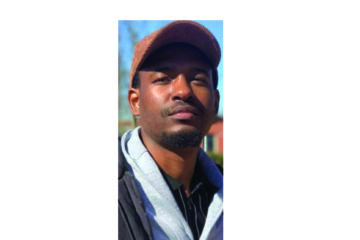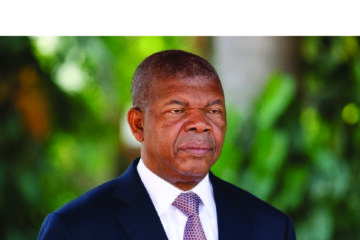When Dr Ndjodi Ndeunyema recently travelled home to Namibia, it was for a profoundly personal reason, to marry the woman he loves, herself an academic of exceptional calibre. The Windhoek Observer congratulates the newlyweds and celebrates their union as a joyful reminder of what Namibian brilliance looks like. But this editorial is not about romance; it is about recognition. It is about celebrating excellence and asking whether, as a nation, we truly value our best minds.
Dr Ndjodi Ndeunyema represents the very best of Namibia, a young, highly accomplished scholar who has distinguished himself on one of the world’s most competitive academic stages. A product of Namibian schools, a graduate of the University of Namibia, and a holder of a Doctor of Philosophy (DPhil) in Law from the University of Oxford, he stands as one of the most qualified Namibians of his generation. His doctoral research, Re-Invigorating Ubuntu Through Water: A Human Right to Water under the Namibian Constitution, is not just an academic exercise. It is a vision of justice rooted in African philosophy and constitutional reasoning, a blueprint for a more humane society.
For this work, Dr Ndeunyema was awarded the inaugural Dr Surya Subedi Prize for the best law doctoral thesis at Oxford. To put that into perspective: among thousands of doctoral students across one of the world’s oldest and most prestigious universities, a Namibian stood tallest. Yet, as we write, that Namibian, instead of shaping national policy at home, practices law at a firm in London, advising multinational clients while Namibia continues to lament a shortage of skilled professionals and strategic thinkers.
This contradiction is not just unfortunate; it is symptomatic of a deeper national malaise. Namibia has become a country that too often celebrates mediocrity and neglects merit. We have mastered the art of awarding loyalty and convenience, but forgotten how to reward brilliance. When our best leave, we wave goodbye politely, and when they return briefly, we take photos, exchange pleasantries, and let them go again. What we seldom do is ask them to stay.
Dr Ndeunyema should not be allowed to quietly return to London. He should be summoned, yes, summoned, by those in power. The President, the Prime Minister, the Minister of Justice, the Attorney General, someone, anyone, should sit him down and ask: What are your plans for Namibia? What can we build together? That is how visionary nations operate. They do not wait for their brightest to volunteer; they recruit them. They identify excellence early, nurture it deliberately, and embed it strategically within their institutions.
Countries that lead do not do so because they have more natural resources or wealth than others, they lead because they invest in human capital and deploy it intelligently. Rwanda, Singapore, South Korea, these nations all share one thing in common: they refused to let their best minds drift away. They created space, incentive, and purpose for their intellectuals and reformers. Namibia, on the other hand, risks becoming a revolving door of lost potential.
Imagine, for a moment, what it would mean to have Dr Ndeunyema leading a National Policy and Research Unit on Human Rights and Governance or serving as a senior advisor in the Office of the Prime Minister, or even heading a think tank that connects Namibian law and public policy with global best practices. His insights on socio-economic rights, environmental justice, and Ubuntu-based governance could profoundly influence how we think about justice, equality, and nationhood.
But for that to happen, Namibia must first confront a cultural problem, the quiet suspicion of excellence. Too often, brilliance is seen as arrogance, and achievement as elitism. We pretend to want progress but fear those who can deliver it. We prefer familiarity over competence, and in doing so, we deprive ourselves of the intellectual horsepower needed to move forward.
Dr Ndeunyema’s story should not only inspire the youth but also challenge those in leadership to rethink how Namibia harnesses its talent. Here is a Namibian who has studied at the highest levels of global academia, published research that places African philosophy at the center of constitutional interpretation, and proven that Namibian intellect can stand shoulder to shoulder with the world’s best. Yet his country has no structured pathway to bring him home, no invitation, no fellowship, no national programme to integrate its diaspora experts into public life.
We should be building such systems. A National Talent Recall Programmecould identify and engage Namibians excelling abroad in fields like law, medicine, technology, science, and economics, providing them with meaningful incentives to contribute to nation-building. Not necessarily by abandoning their global careers, but by connecting their expertise to Namibia’s policy and institutional needs.
It is time for the Namibian state to say, clearly and confidently: We need you.We need your ideas, your knowledge, your excellence. Because building a nation requires its best minds, not just its most available ones.
Dr Ndeunyema’s return home to wed should symbolise something larger, the renewal of a bond between Namibia and its brightest sons and daughters. We should celebrate him not just for his personal success but as a reminder that this country can produce and must retain world-class intellect. He embodies what Namibia could be if it truly believed in itself.
To Dr Ndeunyema and his wife, we say: congratulations. To those in positions of power, we say: do not let this moment pass. Call him. Engage him. In him, and in many like him, lies the promise of a Namibia that not only dreams but delivers.
If we continue to let our best slip away, we will keep circling in mediocrity. But if we choose to honour and harness our excellence, as symbolised by Dr Ndjodi Ndeunyema, then perhaps one day, Namibia will no longer be a place its brightest visit, but the home they help to rebuild.



